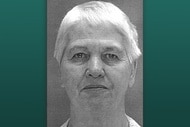Tennessee Supreme Court Declines Appeal Of Death Row Inmate Convicted Of 1989 Triple Homicide
The decision of the state's top court comes after a Tennessee appeals court ruled last week that Oscar Smith failed to present “new scientific evidence establishing that he is actually innocent” in a 1989 triple family homicide for which he is scheduled to be executed.

A Tennessee death row inmate is set to be put to death by lethal injection later this week for a 1989 triple murder after the state’s supreme court declined to hear his appeal on Monday.
Oscar Franklin Smith, 72, will be executed on Thursday after his eleventh hour appeal request was blocked. He had sought a retrial in a triple murder case after his lawyers claimed newly discovered forensic (and possibly exculpatory) evidence had come to light.
On Monday, the Tennessee Supreme Court declined to hear Smith’s appeal to reopen his case, despite unidentified DNA that has since been discovered on a murder weapon used in the killing of his wife and her two teenage sons more than 30 years ago.
The ruling follows a Tennessee Court of Criminal Appeals decision late last week which concluded Smith failed to bring forth “new scientific evidence establishing that he is actually innocent of the murders of the victims,” court filings obtained and reviewed by Oxygen.com stated. A trial judge had also blocked his request to vacate his execution date.
Smith was found guilty in the 1989 killings of his wife, Judith Smith, and her two sons, 13-year-old Jason Burnett and 16-year-old Chad Burnett. All three were stabbed and shot to death at their home in Nashville, according to court records.
For years, the 72-year-old has denied any involvement in the ruthless trio of killings.
This month, Smith had requested his case be reopened in Davidson County after newly conducted tests revealed an DNA sample belonging to an unknown person on a murder weapon used in the decades-old triple murder. Smith had also attempted to prove that fingerprint evidence used to implicate him was problematic — which his legal team claimed strongly pointed to his innocence — additional court documents show.
Smith’s request was ultimately denied by a trial judge, as well as a second request to reconsider, which ultimately led to his appeals.
The county court ruled that “there was not a reasonable probability that the DNA evidence would have prevented petitioner’s prosecution or conviction or would have resulted in a more favorable conviction or sentence,” the filings stated.
The court also pointed to additional evidence linking Smith to his wife and her son’s killings, including prior threats and violence, as well as a life insurance policies he’d taken out on all three victims.
"[The] evidence introduced at trial suggested Petitioner (and nobody else) had motive to kill the victims," the order denying Smith’s motion to reopen post-conviction proceedings stated.
Smith had also appealed a trial court’s order denying his motion to reopen post-conviction proceedings for review under the post-conviction DNA Analysis Act of 2001.
Criminal justice activists, who had advocated on Smith’s behalf, have also said that three jurors from the death row inmate’s trial signed declarations indicating there were several issues with the deliberation process, which ultimately led to his death sentence.
Amy Harwell, Smith’s public defender, didn’t immediately respond to Oxygen.com’s request for comment on the series of court rulings and legal setbacks.
Smith is slated to become the first death row inmate executed in the state since serial killer Nicholas Sutton was put to death by electric chair on Feb. 20, 2020 shortly before the coronavirus outbreak caused a series of executions to be delayed. Smith had initially been scheduled to be put to death in Feb. 2021, but was granted a stay of execution over COVID-19 concerns.
Smith, who is incarcerated at Riverbend Maximum Security Institution in Nashville, is scheduled to be executed at 7:00 p.m. on April 21, corrections officials confirmed. He hasn’t yet requested a final meal.


























